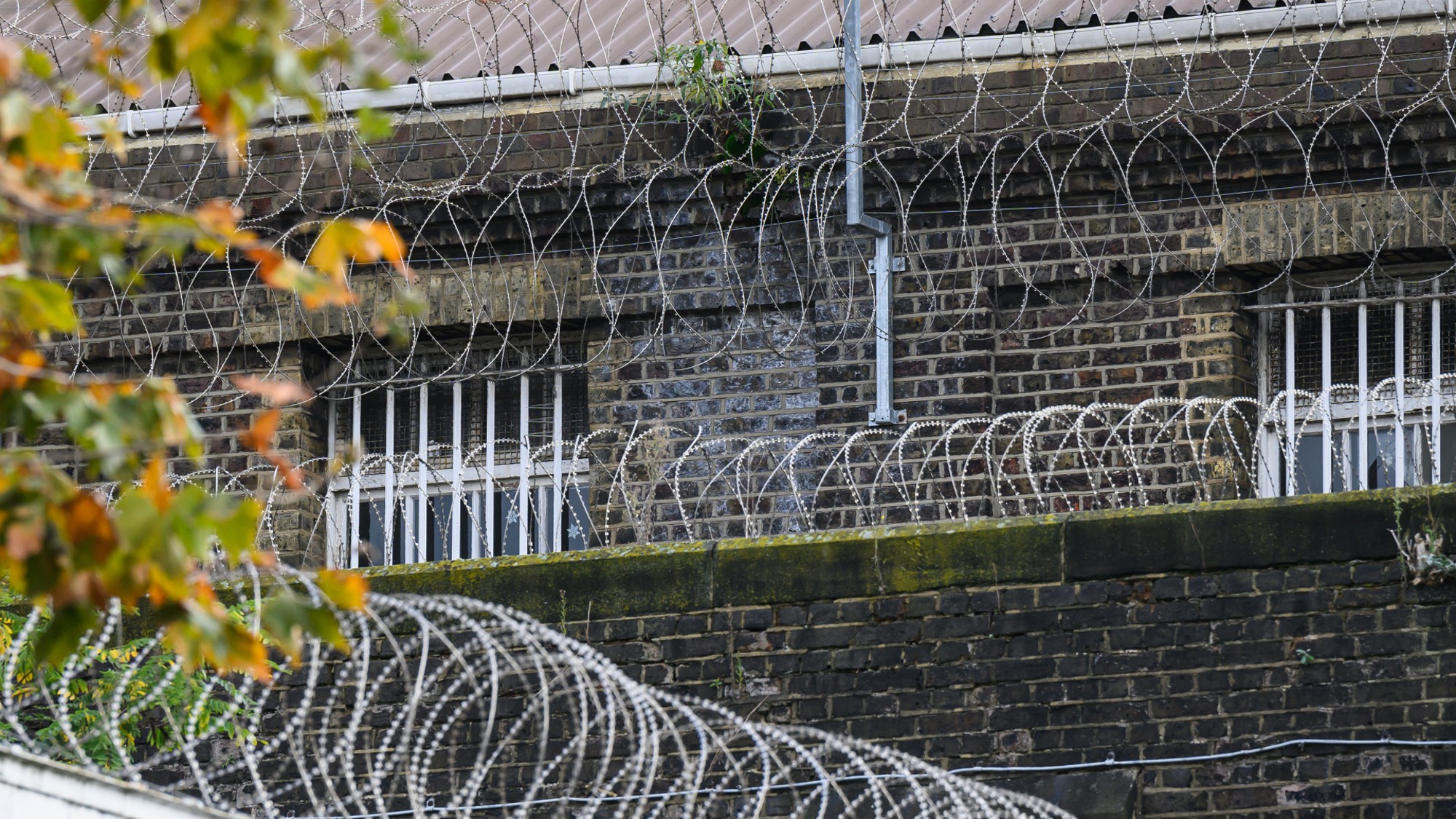The case for abolishing women's prisons
The justice secretary plans to drastically reduce the number of women in jail in England and Wales

A free daily email with the biggest news stories of the day – and the best features from TheWeek.com
You are now subscribed
Your newsletter sign-up was successful
"For women, prison isn't working," said Justice Secretary Shabana Mahmood as she announced plans to dramatically reduce the number of women in jails across England and Wales during the Labour Party conference in September.
Created with the goal of reducing the number of women going to prison, a new body, the Women's Justice Board, will have the "ultimate ambition of having fewer women's prisons". The board will particularly look at early intervention strategies, alternatives to prison such as residential women's centres, and reducing the high-rate of self-harm in women's prisons.
Labour's plans to tackle the number of people in prison in England and Wales have been under scrutiny after the government was forced to release thousands of prisoners early under a scheme aimed at easing overcrowding in jails. The government has also ordered a sentencing review, led by former Conservative justice secretary David Gauke, with its recommendations expected to be published in the spring.
The Week
Escape your echo chamber. Get the facts behind the news, plus analysis from multiple perspectives.

Sign up for The Week's Free Newsletters
From our morning news briefing to a weekly Good News Newsletter, get the best of The Week delivered directly to your inbox.
From our morning news briefing to a weekly Good News Newsletter, get the best of The Week delivered directly to your inbox.
How many women are currently in prison in England and Wales?
There are around 3,600 women in prison in England and Wales, representing just 4% of the total prison population of 86,406. The number of imprisoned women, however, is expected to climb to 4,200 by 2027.
What kind of crimes do women go to prison for?
Most women in prison are there for non-violent crimes, such as drug-related offences and petty theft. In total, 63% of prison sentences started by women in 2021 were for less than 12 months, compared with 48% for men, according to data from the Prison Reform Trust.
The justice secretary has argued that up to two-thirds of the women currently in prison would be suitable for community-based alternatives to jail.
What problems do women in prison face?
Many women arrive in prison "trapped in a cycle of substance abuse, mental health difficulties, homelessness and offending", said Sandra Fieldhouse in a report for HM Inspectorate of Prisons. More than half of women in prison have suffered domestic violence, or abuse in childhood, according to the Prison Reform Trust.
A free daily email with the biggest news stories of the day – and the best features from TheWeek.com
Around 82% of imprisoned women said they had some form of mental health problem, compared with 59% of men, according to HM Inspectorate data. A third of women said they had felt suicidal when arriving in prison, compared with 14% of men, and rates of self-harm for female inmates are more than seven times higher.
The impact goes beyond the prisoners themselves. Around 60% of women in prison have children, compared with 45% of men, and they are more likely to be the primary caregiver. A 2016 report from the charity Women's Breakout estimated that over 17,000 children are separated from their mothers by parental imprisonment and only 5% of these children will remain in their family home.
Could imprisoning fewer women reduce overcrowding in prisons?
As women make up only 4% of England and Wales' prison population, it is unlikely to do much to reduce overcrowding in the prison system as a whole. But reducing their numbers or closing women's prisons could free up additional resources to ease the strain on men's prisons.
So could women's prisons be abolished entirely?
"Imprisoning women is, for the most part, a lose-lose as far as the British taxpayer is concerned", said the Financial Times' associate editor Stephen Bush. "It is pretty expensive, in general these individuals have not committed violent offences, and the impact on their families creates additional costs and risks for the state later down the line".
University of Portsmouth criminology lecturer April Smith told the BBC that most imprisoned women "are not really a threat to public safety" and would benefit more from community programs. Short sentences of six months or less achieve little in terms of rehabilitation, she argued, and therefore serve “no purposeful function” for either society or the women involved.
Sorcha Bradley is a writer at The Week and a regular on “The Week Unwrapped” podcast. She worked at The Week magazine for a year and a half before taking up her current role with the digital team, where she mostly covers UK current affairs and politics. Before joining The Week, Sorcha worked at slow-news start-up Tortoise Media. She has also written for Sky News, The Sunday Times, the London Evening Standard and Grazia magazine, among other publications. She has a master’s in newspaper journalism from City, University of London, where she specialised in political journalism.